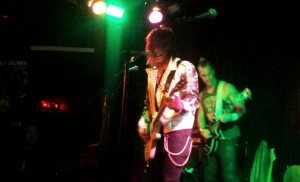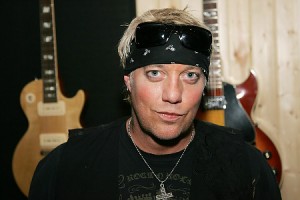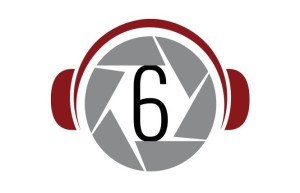Dad's Gone AWOL: The Damaging Effects Of An Absent Father
8 min readThis is the story of a girl with two dads – but what you are about to read is no sitcom plot. The first of these men was out of the picture by the time I was three, although he was hardly present before then; the second came into my life later that same year, and, by the time I was six, his pathological anger had forever shaped the person I would become.
Our relationship, over the years, was characterized by fear – my fear of him, his volatility, his erratic, kamikaze rage, and ultimately his silence. The main source of his approval of me was contingent on excellent performance in school and being smart in general – he prized my intelligence, but not my spirit. So I learned to parlay my intellectual prowess as a kind of relational cachet. It leveled the playing field with him. He was a terrifying force whose love was conditional, but I used my acerbic, finely honed wit to put him in his place. We were opponents, not parent and child.
I remember yearning for my birth father at a very early age. I thought he held the key to something about me – something hidden and special – that we shared something native to no one but us, and I so wanted him to come and rescue me from a world where I was grossly misunderstood. I didn’t want to live apart from my mother, and I didn’t want them to get back together (I knew their marriage had been emotionally traumatic for her), but I wanted him for my own. There was a shroud of intrigue and mystery around him. In a sense, his absence made him beautiful and mercurial. I loved him for having been able to escape the world, leaving no real trace of himself. Ironically, what I perceived to be his quixotic, fickle nature made me love the idea of him even more. I took refuge in the hope that someday he would decide I meant enough for him to want me, to choose me.
Some fathers leave physically. Others abdicate emotionally. I understand the sustained trauma that results from both models, but this exploration is no exercise in myopia. Sadly, when I look beyond the confines of my small life, I see the devastation that physically and emotionally absent men have left in their wake in the lives of my friends – both men and women – coworkers, fellow church members, you name it. The blight of fatherlessness is palpably felt by almost everyone I have ever known.
Two former male friends of mine suffered well into their early 30s with an ill-formed concept of themselves and voiced consistent bitterness toward both of their parents – at their fathers for the sins of alcoholism and emotional absence and toward their mothers for the sins of emotionally emasculating them in an effort to replace the emotional fulfillment that should have come from their husbands.
One of these men would often complain to me that his father could never remember even the most basic details about his life. He was an aspiring musician who was active in a band that frequently played gigs around town. It was not uncommon for his father to ask “Son, do you still play the guitar?” This friend told me more than once that he did not believe his father took anything he cared about seriously, or cared to remember the important details of his life. Though he related these frustrations to me as sarcastic anecdotes, it was apparent to me that he was scarred by his father’s disinterest in him as a person.
The other of my friends actively resented his mother for her overbearing, manipulative desire to control his life by using his loyalty to his immediate family as leverage. His desires to cultivate his own life and relationships outside the family circle were met with extreme, but subtle, resistance. Both of these guys were classic flounderers. They just could not settle into themselves emotionally, and both demonstrated great difficulty in their relationships with other men. Their insecurities and the compulsive need for approval from male peers were apparent.
It’s no secret in Post-Evangelical circles or other Christian sects that fatherlessness is a socio-spiritual epidemic. In addition to a bevy of books by Christian authors, there are numerous Web sites devoted to the topic of “restoring godly masculinity,” healing the “father wound,” and any number of other fitting catch-phrases that describe the pickle in which we find ourselves jammed. Even mainstream social scientists and politicians are clueing in to the negative phenomenon. Stephen Baskerville of Howard University wrote an article in December of 2002, called “The Politics of Fatherhood,” that begins to track the issue from a cultural and psychological standpoint. According to his piece, presidents Clinton and George W. Bush have supported initiatives designed to promote responsible, effective fatherhood.
Singer/songwriter John Mayer, in his song “Daughters,” poetically demonstrates an acute awareness of the problem, not for men in this case, but for women – and a commendable, visceral compassion for the crushing blow to femininity this lack of a father who loves well can create.
As a woman who grew up fatherless, for all intents and purposes, I can say without equivocation that I felt anchorless and orphaned all of my life. I did not successfully identify this feeling of disenfranchisement until I reached my late 20s. A series of failed attempts at relationships, trust issues, and an inherent sense of humiliation and shame that relentlessly dictated all of my actions and interactions were all staring me in the face, so I started to trace the issue back to the seminal point.
My own fatherlessness left me with the sense of being marked. Cursed. At one time, I thought that all men could intuit that I had been rejected by my own father from birth, and that this rejection left an invisible stain on me, a stench I would never be able to eradicate, and by this stain, this smell, that all men knew to reject me because I was inherently damaged.
All of my relationships underscored this feeling. In search of my emotionally and physically elusive birth father, I became enamored of that trait in all men. The greater their unavailability, the harder I campaigned to be important to them – important enough to be chosen. I can date this paradigm all the way back to my first crush in second grade. In fact, many of my relationships with male friends have had such a feeling of desperation about them, because, every time what I was seeking escaped me, it just meant the stakes would be higher on the next go round, with the next guy. We are all trying to heal something from childhood in our adulthood. If I wasn’t going to have my father’s love, then I had to find a suitable stand-in.
For a long time it was the case that, with the realization I might have feelings for a guy, there came a vomit-inducing, ill-to-the-core sensation. Because no human being can stand to have such a crippling self-concept, I learned to deflect the desires I felt by relating to men especially, but really to everyone, solely through my intellect. I considered my emotions to be dangerous, off-limits territory.
I have intellectualized my past. I can even admit, now, that my fathers are not the only source of pain for me. I understand the effects of growing up in an abusive home – how it belittles the soul in increments, engenders hopelessness, and smears the psyche with confounding mixed messages. It is to yearn while simultaneously cursing the want for anything. I have never felt safe loving any man. There were no men who loved me of their own volition, so I became my own man, in a manner of speaking.
I have read and heard credible, albeit largely anecdotal, information about the contribution of fatherlessness to emotional retardation, crushing longing for positive self-identity, pathologically destructive relationship patterns, criminal involvement, substance abuse, weight issues, sexuality confusion, etc., in children and adults. And what is more, I have seen how young men, in particular, are robbed of themselves and of healthy, flourishing relationships with other men and with women because of it.
Father absence impacts men and women somewhat differently, perhaps, but just as deeply. The obvious questions are: How can we help each other? How can we acknowledge this mutual wound without making the wound the only point of commonality?
As a woman, I am reluctant to impart advice for men in search of their sense of self. However, I know I have benefited from a handful of friendships with men in which boundaries were candidly and clearly articulated and demonstrated early on in the relationship. Each of these men had at least one point in common. All of them made themselves appropriately available to me without an excess of emotional disclosure, or if there was any sharing, the disclosures were proportionate to the level of friendship. Women’s hearts are won through their emotions and it is nothing short of categorical devastation for a man to share too much of this side of himself if friendship is truly his only interest. If a woman has experienced paternal absence, this dynamic is significantly heightened for her. As a man, it is beneficial to set the tone of the friendship. Out of fraternal love for her, if you notice her becoming too attached, consider addressing the issue, however uncomfortable or painful it may be.
In his book Wild at Heart, John Eldredge states, “femininity cannot bestow masculinity.” In essence, when a man’s mother, or later girlfriend or wife, tries to give him a sense of himself as a man, it is a futile pursuit because the spiritual impartation of masculine identity must proceed from a father, or father-figure. Even when a man and a woman are in love with each other, if he does not have an older man who can provide support and wisdom to stand in the gap, the task of finding his true self is a daunting undertaking.
My hope is that our generation will not only find healing for the wounds caused by the failure of our fathers to pass along a healthy sense of masculinity, but will transform them into the motivation to break the cycle. I hope this for the sake of the many broken, lost men I have encountered as well as for the women, like myself, who have suffered from the absence of a strong and connected father.






